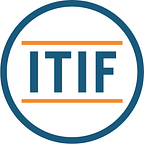Caring Cross and Brazil’s Fundação Oswaldo Cruz Collaboration Increases Access to Life-Saving CAR-T Cell Therapy in Brazil
This post is one of a series in the #Innovate4Health policy research initiative. #Innovate4Health is a joint research project by the University of Akron IP Center (UAIP), the Information Technology & Innovation Foundation (ITIF), and the Geneva Network. This project highlights how intellectual-property-driven innovation can address global health challenges. If you have questions, comments, or a suggestion for a story we should highlight, we’d love to hear from you. Please contact UAIP Research Fellow Douglas Park at dpark@uakron.edu for more information.
Natalie Khoo
The quest to find effective treatments for life-threatening oncological, infectious, and genetic diseases has been a relentless pursuit in the health and life science field, driving researchers to explore new frontiers of innovation and discovery. In recent years, one of the most promising and innovative solutions that has emerged is the chimeric antigen receptor (CAR)-T cell therapy, a form of immunotherapy, which enlists and strengthens the power of a patient’s immune system to attack tumors. CAR-T cell therapy has shown remarkable success in treating blood cancers, particularly lymphomas, some forms of leukemia, and most recently, multiple myeloma.
CAR-T cell therapy represents a revolutionary breakthrough in cancer treatment, harnessing the potential of the body’s own immune system to combat cancer cells. By ingeniously engineering a patient’s T-cells (a type of immune cell), it can express chimeric antigen receptors (CARs) on their surface. These engineered CAR-T cells can precisely recognize and bind to specific proteins expressed in cancer cells, enabling them to seek out and destroy malignant cells. Similarly, where traditional treatments have led to failure or relapse, this innovation offers the potential for long-lasting remissions and, in some cases, even cures for these diseases.
Despite the excitement surrounding the transformative potential of these advanced therapies, the prohibitively high costs of CAR-T cell therapy, exceeding $350,000 per dose, have created a significant barrier to access, particularly for patients in developing countries, including Brazil. However, recent collaborations between Brazil’s Fundação Oswaldo Cruz (Fiocruz), a foundation from the Brazilian government’s Ministry of Health, and Caring Cross, an American non-profit dedicated to accelerating the development and access to advanced therapies for patients around the world, has demonstrated a pioneering approach to overcoming this challenge.
Through this partnership, Caring Cross will transfer its proprietary technology, expertise and training to Fiocruz’s Bio-Manguinhos Institute, Brazil’s leading vaccine and biologics manufacturer. The collaboration, funded by Brazil’s Ministry of Health, aims to develop, manufacture, and commercialize CAR-T cell therapies for the Brazilian population and ultimately the entire Latin America. Subsequently, the technology transfer from Caring Cross to Fiocruz will enable Bio-Manguinhos to locally produce innovative CAR-T cell therapies and lentiviral vectors for leukemia and lymphoma as well as create a platform to expand a pipeline of advanced therapies for the treatment of other diseases in the future.
By leveraging Fiocruz’s manufacturing capabilities and Caring Cross’s innovative processes, the partnership aims to provide CAR-T cell therapies at a significantly reduced cost, making them more accessible to Brazilian and Latin American patients. By enabling local and cost-efficient production, this collaboration will not only provide affordable access to CAR-T cell therapies for the Brazilian public health system, but it will allow access to critical materials and training needed to manufacture CAR-T cells for other organizations in LATAM. Moreover, treatment will be available free of charge to the population, and the cost to the Brazilian public health system would be reduced to 10% of the amount currently charged in Europe and the United States, dropping to $35,000 per dose.
It is imperative to recognize the critical role of intellectual property in facilitating this technology transfer. Caring Cross has developed proprietary manufacturing processes and distribution models that significantly reduce the cost burden associated with CAR-T cell therapies. As CEO Boro Dropulić highlighted, “The high cost for CAR-T cell therapies provides an opportunity for innovators like Caring Cross to change the way these medicines are developed and how they are provided to the patients that need them. Robust intellectual property protection has enabled Caring Cross to transfer its decentralized manufacturing model, which allowed the final cell product to be produced at a reduced cost at the hospital or point-of-care rather than sent to a centralized manufacturing hub.
Brazil is well-positioned to become a regional leader in the development and dissemination of affordable CAR-T cell therapies, and has other ongoing partnerships. These include a collaboration between the Cell Therapy Center of Fundação Hemocentro de Ribeirão Preto, the Federal University of São Paulo, and the Butantan Institute, which are currently conducting ongoing clinical trials with CAR-T cell therapies with so far promising results. To date, 14 patients have been treated with CAR-T cell therapy through these trials, experiencing 60 percent tumor remission. Additionally, the Brazilian Patent and Trademark Office database currently has over 30 patent applications related to CAR-T cell technology, with most filings from 2019 onwards, indicating growing domestic investment and commercial interest in this field.
Moving forward, the future of CAR-T cell therapy in Brazil looks promising. The collaborative efforts between research institutions, pharmaceutical companies, and government entities have demonstrated a pioneering approach to overcoming the significant barriers to accessing these advanced therapies in developing countries. By addressing challenges to access and fostering an environment of technology transfer, we can enable life-saving treatments to reach underserved populations worldwide. Ultimately, this partnership between Caring Cross and Fiocruz exemplifies the power of innovation, intellectual property protection, and global cooperation in advancing healthcare and improving the quality of life for countless individuals battling life-threatening diseases all around the world.
